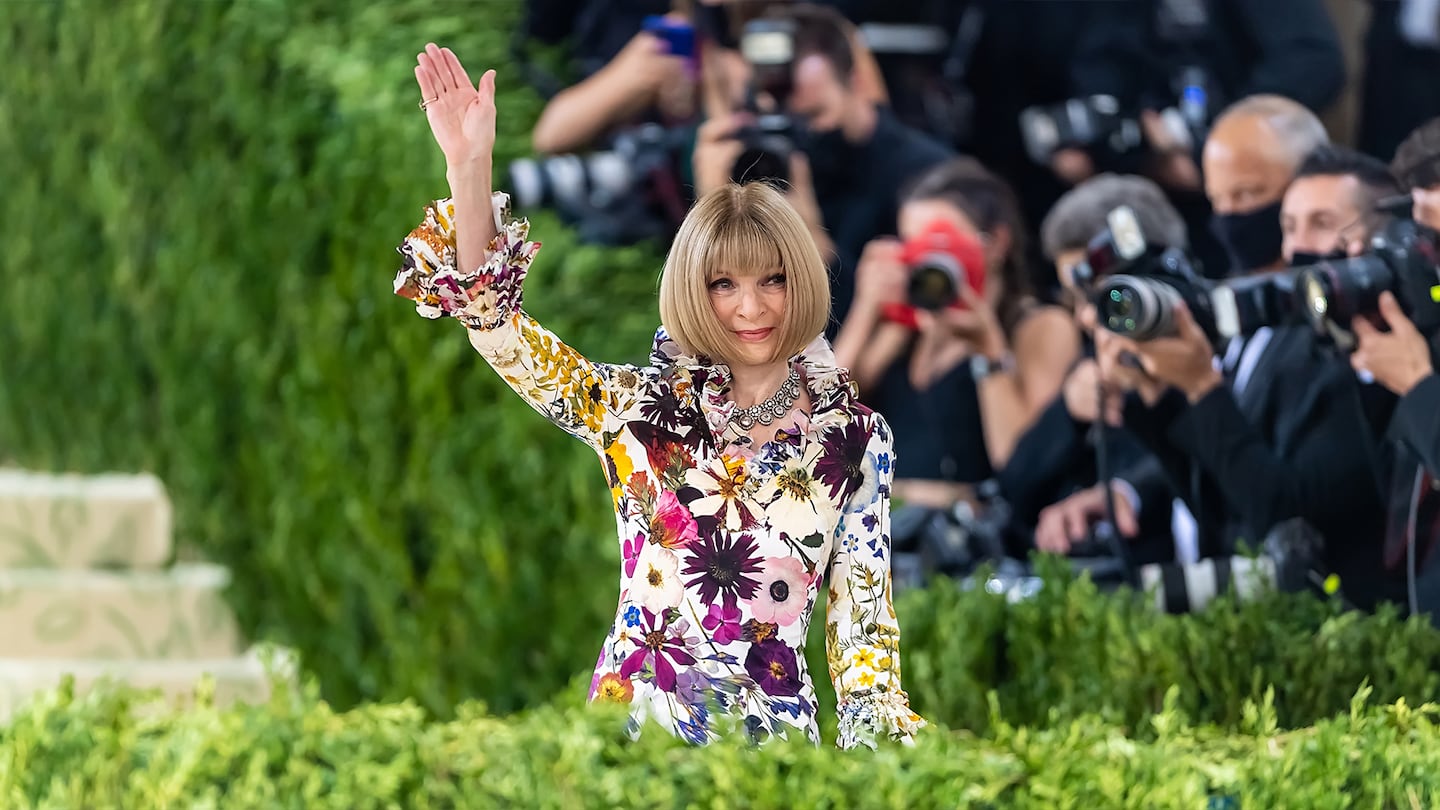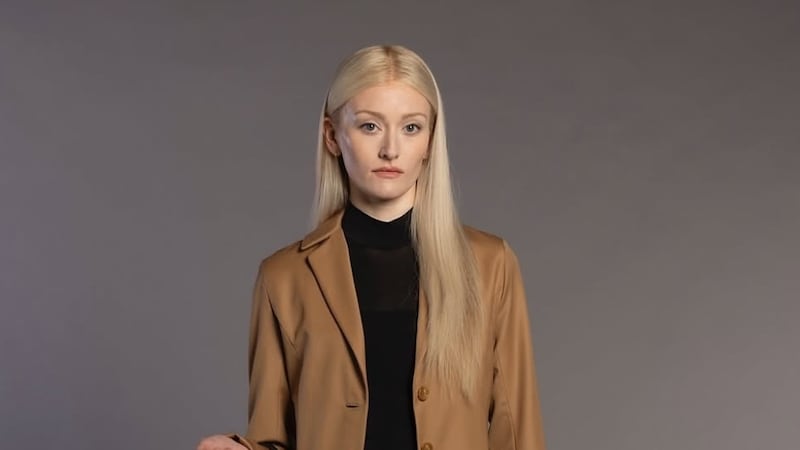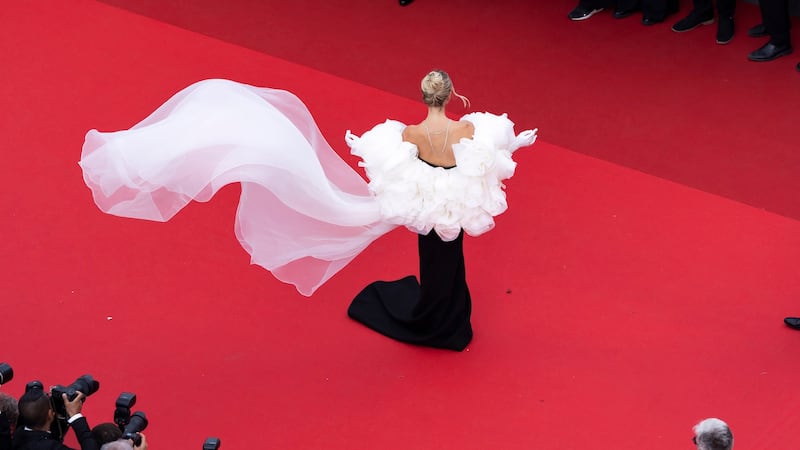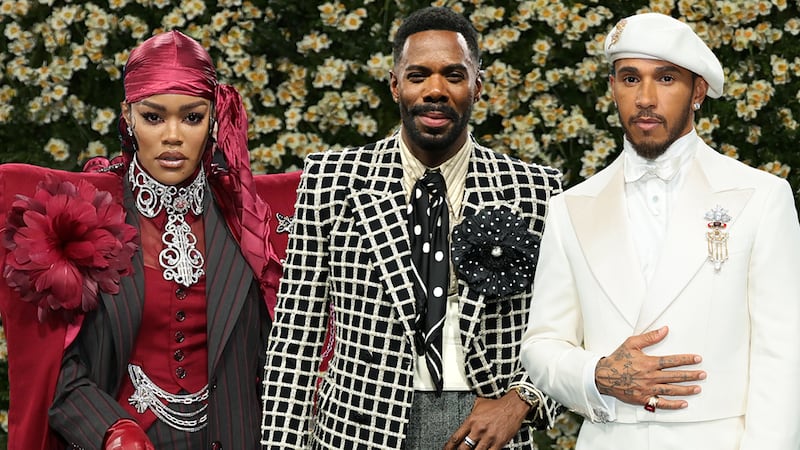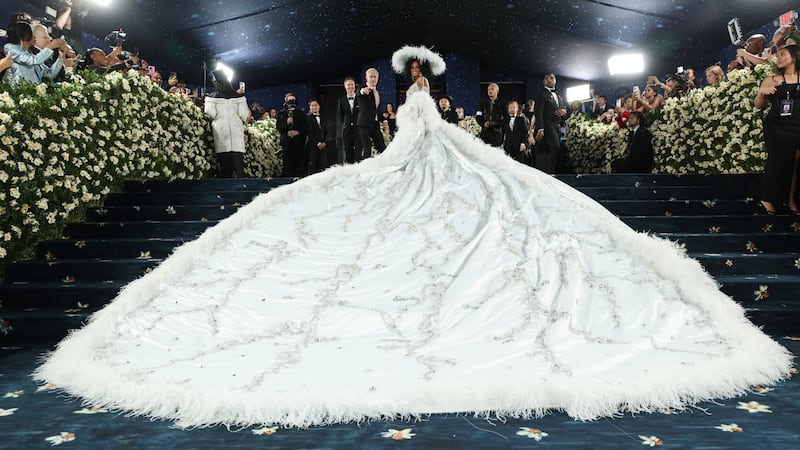Agenda-setting intelligence, analysis and advice for the global fashion community.
Anna Wintour is stepping back from her role as editor-in-chief of American Vogue and hiring a new regional ‘head of editorial content’ to oversee the title’s day-to-day operations.
The move is the latest step in a years-long reorganisation that has rolled out across Vogue’s international editions, replacing editors in chief with heads of editorial content reporting to Wintour, who after today’s announcement will continue to oversee the Vogue brand as global editorial director and chief content officer at publisher Condé Nast, where she supervises nearly every title at the company, with the exception of the New Yorker.
This news, which was announced to Vogue staffers on Thursday morning, is something of a response to how much Wintour’s role at the company has expanded in recent years; bringing on a new head of editorial content will allow her to more equally distribute her time among the other titles under her supervision.
Rumours of Wintour’s departure from the top job at American Vogue have swirled for years — decades, even — typically shot down by a Condé Nast spokesperson or Wintour herself. However, perhaps in a sign of what was to come, last December, the magazine tapped its first-ever guest editor, designer Marc Jacobs, who put the model Kaia Gerber on the cover; the issue was well received online.
ADVERTISEMENT
Under her leadership, Vogue moved away from putting models on the cover in favour of celebrities, a transition adopted by fashion magazines around the globe. She also spearheaded the transformation of the Metropolitan Museum of Art’s annual Costume Institute fundraiser from quiet society function to one of the most talked-about red carpets in the world. Her influence extends far beyond fashion: As biographer Amy Odell documented in her 2022 book “Anna: The Biography,” everyone from directors like Bradley Cooper to athletes such as Serena Williams have leaned on Wintour’s counsel and advice at pivotal moments of their career.
The more recent years of her tenure have been defined by a declining media industry, as ad dollars have been diverted from traditional outlets to social media and tech giants. In the wake of George Floyd’s murder in 2020, Wintour also acknowledged “Vogue has not found enough ways to elevate and give space to Black editors, writers, photographers, designers and other creators.” That year, for the first time, the majority of the models, photographers and artists featured in the September issue were Black.
While this move is certainly far from a retirement, it is the surest sign that the company is considering succession plans for the inevitable post-Wintour era.
Her departure from the day-to-day marks the first time in 37 years that the top job at American Vogue is available. Competition for the job will inevitably be fierce, with much speculation over who will be named as her successor. It’s the second high-profile editor departure for Condé Nast this year; Vanity Fair editor-in-chief Radhika Jones announced her exit in April, a Vogue insider, creative editorial director Mark Guiducci, was named her replacement earlier this month.
